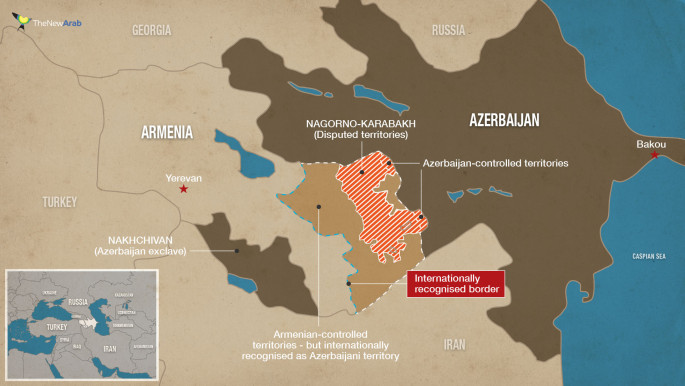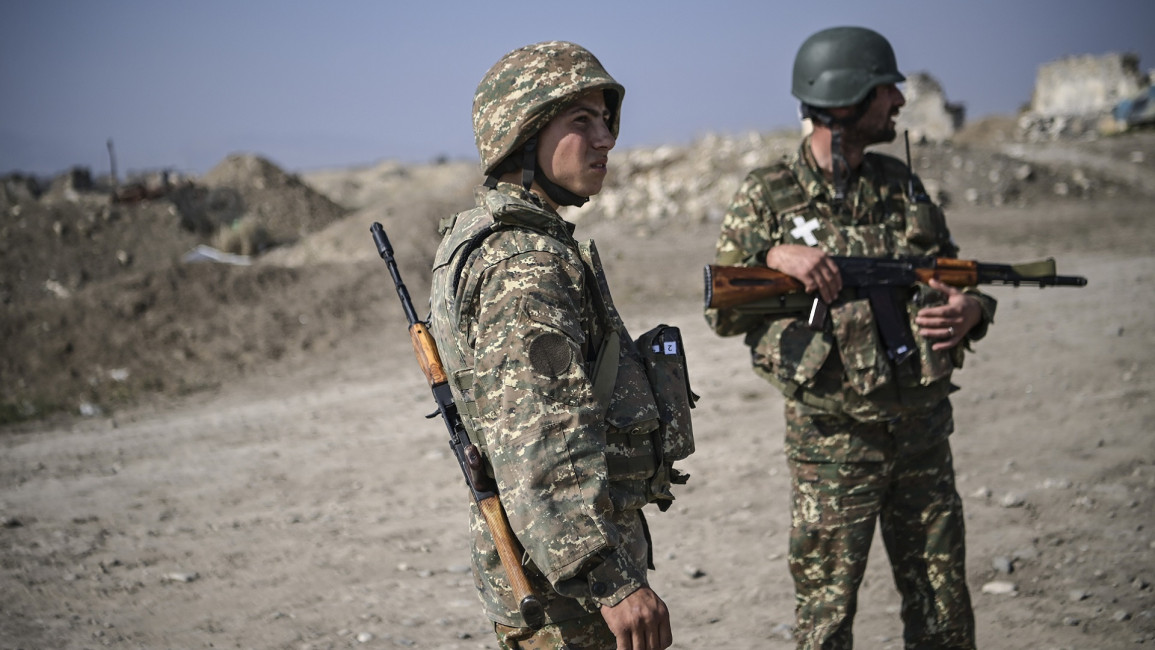More fighting over Nagorno-Karabakh despite ceasefire
A new ceasefire agreed between Armenia and Azerbaijan to halt fighting over the disputed region of Nagorno-Karabakh was again failing to hold on Monday as both sides accused each other of fresh attacks.
The truce, backed by international mediators to put a stop to three weeks of fighting that has left hundreds dead, was supposed to have come into force at midnight on Sunday but both sides immediately accused each other of violating the deal.
The Nagorno-Karabakh region of Azerbaijan is controlled by Armenians, backed by Yerevan, who declared independence as the Soviet Union fell.
But it has never been recognised by any other state, including Armenia, while Azerbaijan has always made clear its desire to regain control of the area in one of the most combustible conflicts remaining from the fall of the USSR.
The Azerbaijani defence ministry said on Monday that Armenian armed forces had shelled areas in four districts inside the country overnight.
Meanwhile, the local authorities in Karabakh said Azerbaijani artillery fire continued overnight, with the Karabakh army taking "proportionate actions" in response.
However Nagorno-Karabakh's main city Stepanakert was quiet overnight, an AFP correspondent said.
The ceasefire was the second agreed after a previous truce thrashed out in Moscow earlier this month never showed any sign of seriously holding.
Read also: 'Reclaimed ruins': Azerbaijan shows off Karabakh conquests
Azerbaijani President Ilham Aliyev accused Armenian forces of "blatantly" violating the ceasefire, including firing on residential areas, and said there were dead and wounded.
Writing on Twitter, he said Azerbaijani forces had taken control of 13 more Armenian-held settlements.
Azerbaijan has repeatedly claimed military success in the current fighting by taking control of areas both within Karabakh and other Azerbaijani territory that had been held by Armenian forces.
But analysts say Azerbaijan is unlikely to be able to retake control of Karabakh through military means alone, while the seemingly irreconcilable positions on both sides makes a diplomatic solution elusive.
UN chief Antonio Guterres on Sunday called on Armenia and Azerbaijan to "fully abide" by the new ceasefire, his spokesman said.
The new deal was announced after one of the conflict's deadliest attacks on civilians so far on Saturday, when a missile hit a residential area of Azerbaijan's second city Ganja, killing 13 people including children.
The clashes over Karabakh that erupted on September 27 have left more than 700 dead, according to official tolls, but the real number may be much higher.
Follow us on Facebook, Twitter and Instagram to stay connected


![President Pezeshkian has denounced Israel's attacks on Lebanon [Getty]](/sites/default/files/styles/image_684x385/public/2173482924.jpeg?h=a5f2f23a&itok=q3evVtko)



 Follow the Middle East's top stories in English at The New Arab on Google News
Follow the Middle East's top stories in English at The New Arab on Google News


